When searching for ready -made frame and energy -efficient solutions for building a house more and more ...
|
|
Since ancient times, and still piece parquet due to the aesthetic qualities for ... |
Regardless of the finish coating in your house or apartment, it is necessary for it ... |
KNAUF insulation: technical characteristics and application
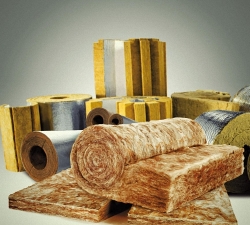
To insulate inclined roofs, attic floors or the inner surface of the walls, a great option will be the use of KNAUF insulation. This material is characterized by high quality and long -term operational properties. We will consider further about the features, characteristics and sphere of use of KNAUF insulation.
Table of contents:
- General information about insulation materials
- Features and advantages of using KNAUF insulation"
- The scope of use of KNAUF insulation"
- CNAUF insulation characteristics and review
- Recommendations for the choice of insulation KNAUF"
General information about insulation materials
The use of insulation becomes more common both in the construction of private houses and high -rise buildings. The main feature of insulation is a very low level of heat conductivity. If we compare the thermal conductivity indicator of standard insulation and brick, then it is eighteen times lower. Therefore, the installation of insulation significantly saves funds for heating the house in the winter season.

Consider the main types of insulation materials used in construction:
1. A heater from a foam is a material based on polystyrene foam that has undergone special processing. This material is characterized by a low level of thermal conductivity and the ability to withstand huge loads of more than 40 tons per one meter square. It has a wide scope of application, used to warm the road surface, walls, ceilings, foundation, attic, roof, etc.
2. A heater based on basalt fiber or basalt wool is the most popular material that is used in the construction of a low -rise type. It differs in non -combustibility, low thermal conductivity, vapor permeability. It is used in the process of insulation of walls, floor, attic, inter -story sites and foundation.
3. A fiberglass -based insulation is used a little less often, used for almost any insulation. It has a good water -repellent effect, over time mold or fungus does not form over time.
4. The traditional and lowest -budget insulation is polystyrene - the main drawback of which is its slight ignition.
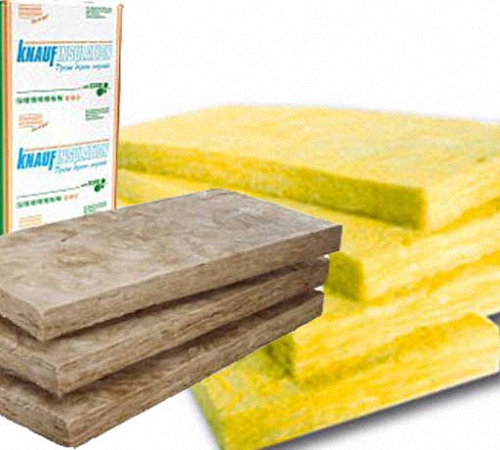
Features and advantages of using KNAUF insulation
The manufacture of KNAUF insulation is engaged in a German company, which has the name of the same name. All KNAUF products are famous for high quality and has extremely positive reviews. This also applies to insulation, in its production only natural components are used that do not cause allergies and are absolutely harmless to health.
We offer to get acquainted with the main advantages of KNAUF insulation, which once again indicate their quality:
1. Supplining the house with the products of the KNAUF brand, it turns out to save on heating.
2. The low thermal conductivity allows you to retain heat and releasing it into the street.
3. The high level of noise collapse provides the heat -insulated surface not only with heat, but also is an excellent sound insulator.
4. Fire safety and stability over ignition is another advantage of KNAUF insulation. This material is absolutely non -combustible.
5. The high level of biological resistance is protected by the insulation from eating rats or mice. Therefore, the material can be used for a long time.
6. Lack of unpleasant odor, soft texture - provide comfort when working with this insulation.
7. The possibility of compressing or buying a rolled KNAUF insulation is another advantage that facilitates its transportation.
8. The practical lack of shrinkage and lightness do not load the walls and retain heat for a long time.
9. The warranty from the manufacturer is more than forty years old, so having installed such a heater for almost half a century you do not need to worry about its replacement.
10. In the manufacture of KNAUF insulation, neither dyes nor bleach are used, so the quality remains at the proper level.
11. Convenient packaging reduces material resources for transporting insulation.
12. KNAUF materials are easily cut and not prone, unlike analogues, so working with them is easy and comfortable.
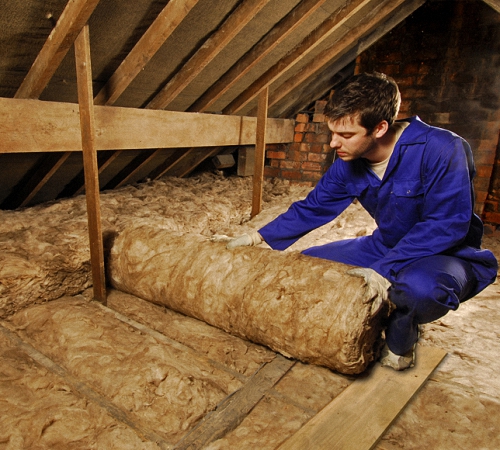
The scope of use of KNAUF insulation
1. KNAUF products are used in the process of wall insulation. It is both internal and external. It is better to produce external insulation, since when performing such actions, the freezing point moves to the outside of the wall, so the heat in the building is more preserved.
2. In order to maintain heat on the floor and reduce its noise conductivity, the insulation of the KNAUF brand is also used.
3. Thermal insulation of the roof is both ventilated and non -preferenced. The first method prevents the appearance of condensate and allows the roof to breathe.
4. Materials for the thermal insulation of KNAUF, are used for installation on various types of roofs, both pitched and even.
5. To prevent freezing of non -residential premises: warehouses or industrial buildings also use KNAUF insulation.
6. For insulation of basements, balconies, loggias, slabs with increased strength are used, which have practically no shrinkage.
7. In order to avoid letting in the soil in the winter season, they use KNAUF insulation, which insulate the foundations and basement areas of the building.
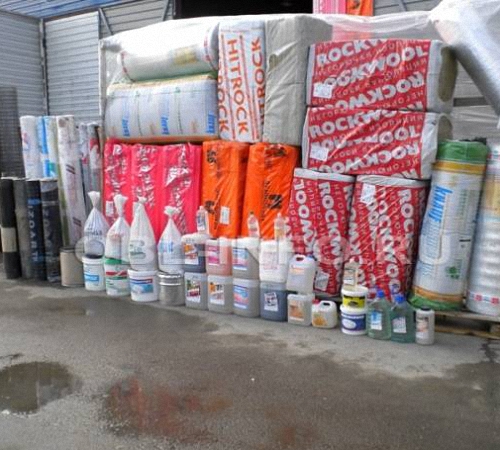
CNAUF insulation characteristics and review
Consider KNAUF insulation made of glass wool. They are divided into:
- Knauf Insulation;
- Knauf or Teploknauf.
The first version of insulation is characterized by high elastic properties, used in the insulation of the outer surfaces of the walls: in residential, public and industrial premises.
Several types of KNAUF insulation are distinguished, which are used for insulation:
- facades;
- roofs;
- Parting.
The insulation for the facade is installed on the outer walls, produced in the form of plates. One packaging contains from eight to sixteen pieces.
The second option is used in the process of roof insulation. It is produced in two forms: tile or matte. The required amount of material from one piece to twenty -four packs in the package.
In the process of building buildings of residential, public or industrial purposes, such as high -rise buildings, shops, theaters and restaurants, use the third version of external heater. The packaging contains four to twenty -four plates or four rolls, in accordance with the required shape.
The use of a warm -up is associated with the insulation of residential premises, such as a house or cottage. This insulation can be of several types:
- Knauf Cottage - has excellent soundproofing properties, provides a high level of thermal insulation, is a universal material, with which both the roof and walls are insulated, the presence of hydraulic transmission increases the water -repellent effect, the thickness of the plates is 50 mm;
- Knauf Cottage Plus - differs in the same characteristics as the previous material, but the thickness of the layer is 100 mm, therefore it is more reliable and high -quality;
- KNAUF DACHA - a cheaper type of insulation that is installed in rooms in which people live periodically, for example, in the country, since with severe frost, this material is not able to fully perform their functions;
- Knauf House - increases the thermal insulation properties of both walls and roofs in private houses, apartments and other residential premises, the plates have a thickness of 50 mm;
- KNAUF HOUSE PLUS - has such features and functions like KNAUF HOUSE, only has a higher level of thermal insulation and thickness, which is 100 mm.
In addition to glass wool insulation, KNAUF is engaged in the production of polystyrene insulation. They are produced in the Knauf Therm series.
Foam polystyrene is called a material that is distinguished by such characteristics:
- high sound insulation;
- high water -repellent effect, this aspect is especially important in the process of warming the roof;
- This material is not subjected to rot, the development of mold, fungus and other microorganisms;
- It is absolutely harmless and environmentally friendly material;
- Includes special additives that contribute to improving the quality of fire safety and non -combustibility;
- good geometric forms of plates, practically eliminate the risk of cracks, when installing them;
- do not require special clothing and respirators when working with polystyrene foam;
- It is much easier to plaster than mineral wool;
- They have a long service life that exceeds thirty years.

The KNAUF Therm series contains materials that allow you to insulate rooms, floors, walls and facades of wooden houses.
Plates are produced in a standard size: 120 cm by 10 cm. An order of non -standard plates is possible. Consider the main varieties of thermal insulation materials Knauf Therm and their features:
1. KNAUF Therm Floor - a heat -insulating moisture -resistant insulation, which is produced in the form of plates, has increased strength, is suitable for heat -insulating work on all types of floors, basement, blind area and foundation walls, the depth of which does not exceed three meters.
Peculiarities:
- does not contain and does not secrete harmful substances;
- able to withstand a load of more than 14 tons per 1 m;
- does not give shrinkage;
- low thermal conductivity.
2. Knauf Therm Facade - used for external insulation of the walls of any buildings. Used to build a facade system with plaster, which is laid in a thin layer. Installation of these plates is carried out in these stages:
- If necessary, the plates are sawn in the right size;
- installed and fixed with mounting glue and dowels system;
- A protective layer is created plastered and red mass, which after drying is covered with a decorative layer.
When installing these plates, the presence of small cracks between them is not allowed.
Advantages:
- environmental Safety;
- high strength level;
- fire safety;
- Lack of shrinkage.
3. Knauf Therm Roof is a thermal insulation material that is used in the process of insulation of the flat roof. It is possible to use them for flat roofs with a base of concrete or reinforced concrete material or insulation of flat roofs from a metal profiled sheet.
Peculiarities:
- environmental friendliness;
- non -alcohol;
- ease of installation;
- a light weight;
- Stability before moisture.
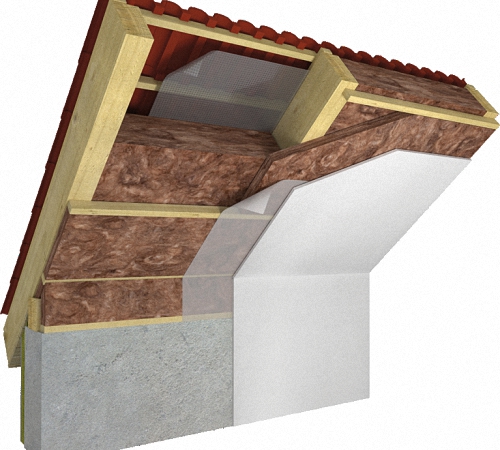
4. Knauf Therm walls - used in the behavior of heat -insulating work on various types of walls.
Scope of use:
- walls with the presence of cladding or lining;
- walls of frames;
- hinged facades with air gaps;
- partitions of frames made of metal or wood;
- In the process of manufacturing panels of concrete or reinforced concrete composition.
5. Knauf Therm Roof NL - plates are designed for thermal insulation, they are used when working on the roof, and characterized by increased strength characteristics.
Allow the thermal insulation on a flat or pitched roof. The plates are light and ease of installation, moisture resistant, fireproof. They do not give shrinkage.
6. KNAUF Term D five in one - plates that allow insulation at increased load.
Scope of use:
- with thermal insulation of the foundation, the depth of which does not exceed six meters;
- for thermal insulation of roofs and floors with additional load;
- They are used in order to protect the waterproofing of the load -bearing walls, due to the exposure of their mechanical damage;
- Improve water outflow in the external walls of the basement.
Advantages:
- lack of phenol-formalhegide;
- the ability to withstand the loads of about twenty tons or more;
- moisture resistance;
- The step edge of the plates does not need to close the seams;
- To simplify the cutting process on the plates, a special marking is applied;
- A special textured surface helps to improve the qualities of glue and increases the adhesion of the plate with the wall.

7. KNAUF Term from 5 in 1 - plates are used when warming the facade or outer wall of the building.
The installation of plates includes:
- installation and fixation of thermal insulation with mounting foam, glue or dowels;
- the construction of a protective layer, which consists of plaster and glue;
- Application of a decorative texture layer.
Advantages:
- Safety of use;
- moisture -repellent properties;
- does not need to close the seams;
- easily cut and installed;
- It has a high level of adhesion with the surface.
8. KNAUF Term F 5 in 1 - plates that allow you to insulate the walls, the foundation of the building or the floor.
Scope:
- Vygotypical floors;
- flat roof;
- facade parts of the building;
- garden paths;
- balconies;
- foundation and basement;
- basements.
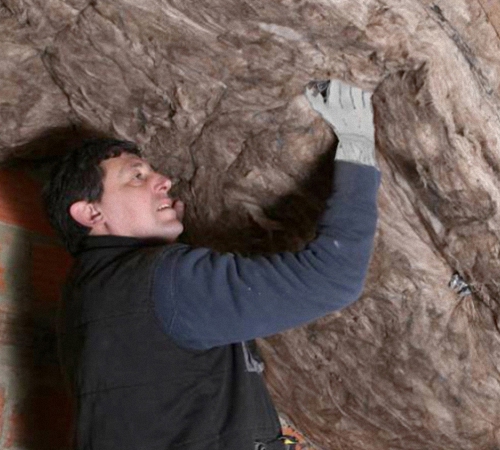
A distinctive feature of this thermal insulation material is the ability to withstand loads, which exceed 15 tons per square meter. The material is easily and conveniently transported.
9. Knauf Therm Concrete - insulation plates that are characterized by increased strength, allow the insulation of various floors.
Used in the device of floating floors or bulk ties. The material is not amenable to rot or formation of mold, is not attractive to mice and other rodents, so it is able to last a long time. Plates withstand the load up to ten tons per square meter.
10. Knauf Therm Compack - insulation material that is used in suburban construction or repair of premises.
Scope of use:
- thermal insulation of the pitched roof;
- attic;
- walls both outside and indoors;
- insulation of attic premises and inter -story areas;
- soil floors and basements.
Peculiarities:
- the ability to withstand the load up to six tons;
- ensuring additional protection against leaks;
- high properties of thermal insulation;
- environmental Safety.
Recommendations for the choice of insulation KNAUF
1. To buy KNAUF insulation, contact a specialized construction store where experienced consultants will help calculate the required amount of material.
2. For the heater KNAUF price, depends on the following factors:
- type of insulation;
- the amount of material necessary;
- plates size;
- insulation load;
- The place of insulation.
3. Studying about the KNAUF insulation reviews, we conclude that its only drawback is the high cost, compared with insulation of other manufacturers. But, the purchase of insulation KNAUF gives its owner high quality thermal insulation, which pays off for two to three years and a long service life of which is fifty years.

4. When choosing a KNAUF insulation, pay attention to its technical characteristics, each series of insulation is intended for various places of insulation.
5. Be sure to purchase the mounting foam or dowel to fix the insulation.
6. Warming the surface must also take care of vapor barrier, windproofing and waterproofing.
7. Pay attention to the thickness of the insulation, for walls its value is less than for the floor.
8. To insulate the pitched roof, use a fiberglass insulation or on a basalt -based.
9. The use of polystyrene foam, which has a water -repellent effect associated with the insulation of the foundation.

The insulation of the heat -oxuf is the most
Teploknauf insulation is the lowest prices in Moscow and the Moscow region. Bbesta -paying delivery of multiple pallets in the limit of the Moscow region! Delivery from the plant! http://www.knaufstore.ru/